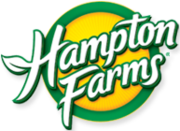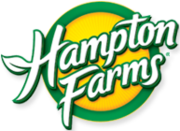Five Myths and Facts About Peanuts

As one of America’s most beloved snacks, peanuts have been a staple in our pantries for generations. From ballgames to lunchboxes, our love for peanuts has been passed down through families for decades. But with all that popularity comes plenty of chatter, and sometimes, misinformation. Over the years, myths about peanuts have surfaced around everything from how they grow to whether they’re actually good for you.
We’re passionate about peanuts and proud of the role they play in a balanced lifestyle. Even well-known peanut facts can get twisted over time. That’s why we’re tackling five common myths and sharing the real facts and truth about peanuts.
Myth #1 | Peanuts Are Nuts
Despite the name, peanuts aren’t technically nuts at all. Botanically speaking, they’re actually legumes, meaning they belong to the same plant family as beans, lentils, and peas. Peanuts grow underground and develop inside a pod, unlike tree nuts, which grow on trees. The name “peanut” comes from their pea-like growth pattern combined with their nutty flavor, a perfect example of how these healthy little snacks blur the lines in the best way.
That said, peanuts are still considered nuts from a culinary and nutritional standpoint. They have a similar taste, texture, and nutrient profile to tree nuts, which is why they’re grouped together in recipes and snack aisles.
Myth #2 | Peanuts Are Unhealthy Because of Their Fat Content
One of the most persistent myths is that peanuts are unhealthy because they’re high in fat. The truth is, they contain healthy unsaturated fats that help support heart health and overall wellness. In fact, research has shown that regularly enjoying peanuts can be linked to a reduced risk of heart disease.
The truth about peanuts is, when enjoyed in moderation, they’re a nutrient-dense snack packed with protein, fiber, vitamins, and minerals. They help keep you feeling full and energized, making them a smart choice for busy days.
Myth #3 | Peanuts Are Genetically Modified
With so much discussion around GMOs, it’s understandable that people wonder if peanuts are genetically modified. The answer is simple: currently, there is no such thing as a GMO peanut. Any peanuts grown and sold in the U.S. are not genetically modified.
Today’s peanuts are nearly identical to the ancient plant, sharing more than 99% of the same genetic makeup. While selective breeding is used to improve crop quality, a natural and time-tested process, genetic modification is not part of peanut farming. This is one of those peanut facts that often surprises people, but it’s reassuring to know just how natural these tiny treats really are.
Myth #4 | Peanuts Have Mold
You may have heard concerns about mold in peanuts, but this is another myth worth clearing up. Peanuts, like many crops, can be susceptible to mold if not properly handled. That’s why peanut farmers follow strict guidelines set by the FDA and USDA to prevent the presence of aflatoxin, a byproduct of mold. Thanks to careful farming practices and advanced cleaning, shelling, sorting, and blanching processes, they are among the most highly regulated foods in the U.S.
Myth #5 | Peanut Butter is Full of Additives
Peanut butter often gets a bad rap, but the facts tell a much better story. While some varieties may include added sugars or oils, peanut butter itself is simply ground peanuts, and it’s packed with nutrition. Among the most popular peanut butter facts is that it’s a plant-based source of protein and healthy fats. Peanut butter has been linked to improved cholesterol levels and heart health, and it delivers essential nutrients in every spoonful. Our Hampton Farms peanut butter is cholesterol- and gluten-free, with 7 grams of protein per serving and more than 30 nutrients. Simple ingredients. Big flavor. Real benefits.
The Fact is, Peanuts are Nutritious, Delicious, and Safe to Eat. Especially from Hampton Farms
With these myths officially debunked, and the truth about peanuts made clear, you can feel confident enjoying them as part of your everyday routine.
At Hampton Farms, we’ve been proudly supplying fresh, high-quality peanuts from seed to shelf since 1917. As a family-owned business, we’re committed to integrity, sustainability, and the pride of American farmers. If you’re looking for a locally grown, nutritious, and delicious snack, we invite you to enjoy Hampton Farms peanuts today.


Leave a comment